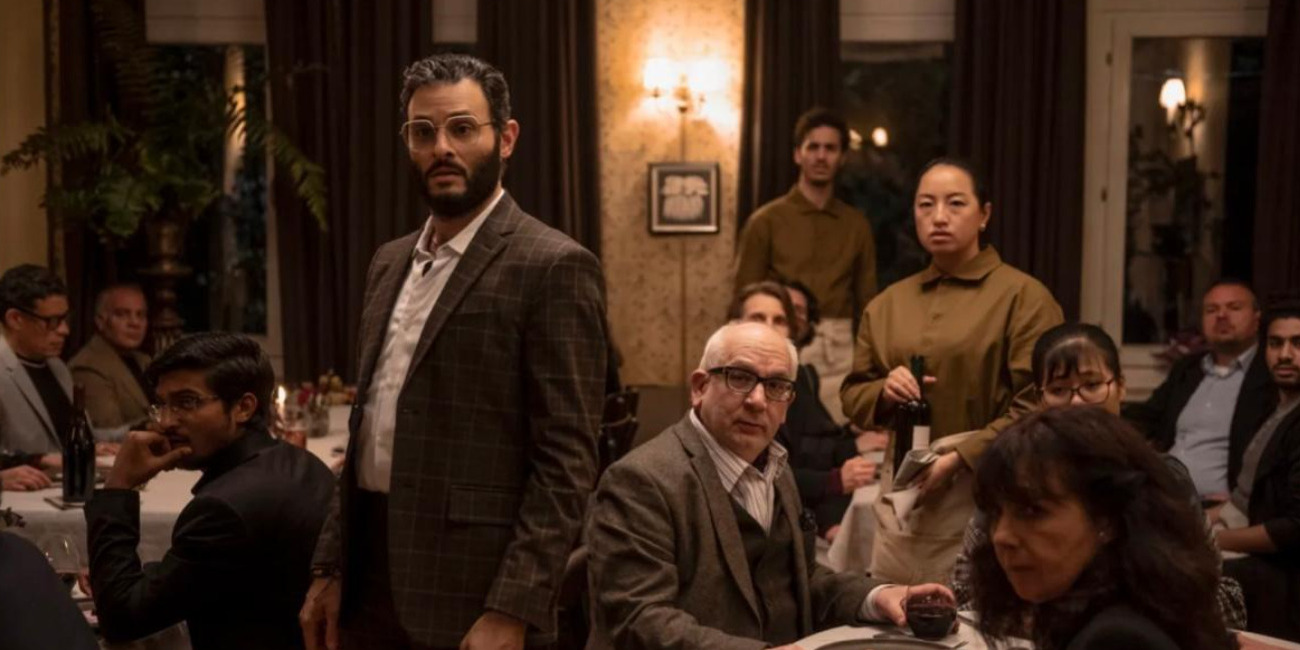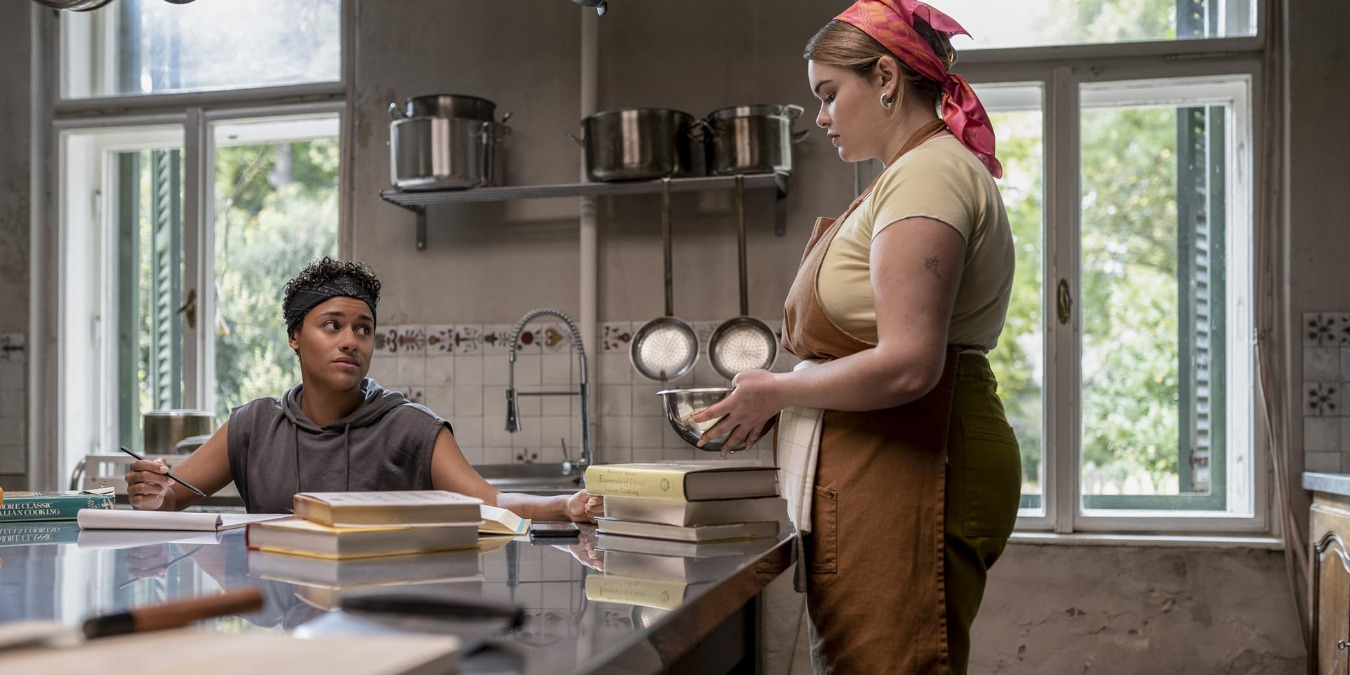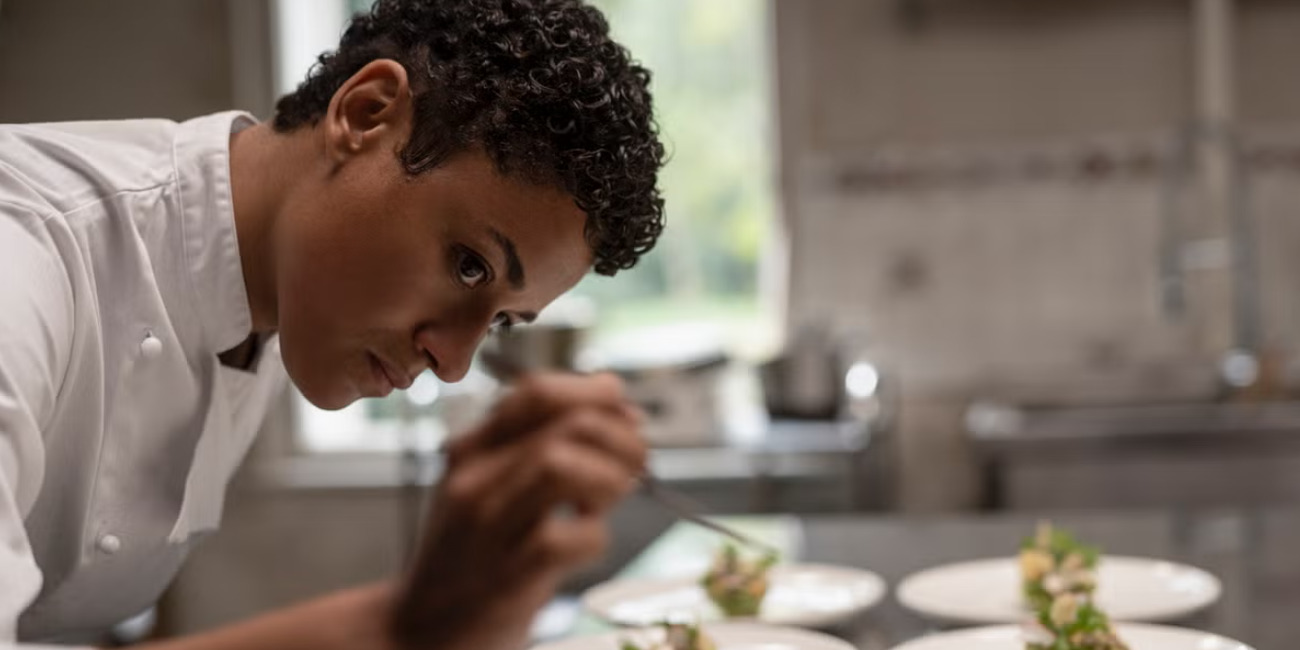Co-directed by Bridget Savage Cole and Danielle Krudy, Prime Video’s ‘House of Spoils’ tells the story of a chef trying to start her own restaurant in a dilapidated mansion but falling under the influence of a malicious presence. Heading to a remote estate in upstate New York, the chef quits her job and brings an investor on board to create a destination fine dining experience. Her culinary talents and connections help secure a steady stream of diners against all odds, but an unforeseen obstacle threatens to destroy everything.
The specter of the house’s deceased owner begins to haunt the chef, rotting food, causing insects to crawl out of the diners’ meals, and becoming the struggling proprietor’s worst nightmare. The Amazon Prime film uniquely blends culinary drama with horror, delivering the chef’s experiences with overstated surrealistic elements.
House of Spoils: A Fictional Story of One Artist Haunted by Another
‘House of Spoils’ is a fictional film that originated from the writers, Bridget Savage Cole and Danielle Krudy, having an artsy and abstract idea about a female artist being haunted by the ghost of another. They were then struck by the concept of the artist being a chef, and all their subsequent plot points and themes came to them in a cascade. The long-abandoned house, haunted by the tragic fate of its previous owner, is a staple of the genre, and for good reason. It evokes ubiquitous spooky tales about such desolate and cursed abodes with a dark past. In a scene, the chef references ‘Tales from the Crypt,’ an eccentric ‘90s anthology horror series whose innovative and genre-bending nature likely served as an influence for the film.

By merging culinary art with horror, the film touches on themes of creative pressure, ambition, and legacy. The combination of culinary precision and supernatural horror makes ‘House of Spoils’ a unique addition to both genres. Additionally, Ariana DeBose’s efforts to portray the chef authentically contribute to grounding the film’s buildup. Having a Southern culinary background, DeBose took on the role seriously, embarking on a culinary journey of her own. For a week, she trained under Chef Ayesha Nurdjaja, who owns the NYC restaurant Shukette. Even when on set, the actress continued to hone her knife skills with the film’s food stylist, Zoe Hegedus. The result was a thoroughly convincing portrayal of the chef fighting for a chance at success in the culinary world.
House of Spoils Takes Inspiration from the Writers’ Culinary and Leadership Experiences
Both the writer-directors of ‘House of Spoils’ are familiar with the workplace environments of restaurants, as they have spent years waitressing in New York City establishments. The two cherish their experiences and maintain a connection with the food industry as it became a part of their formative years. This experience helped them infuse the script with grounding and relatable instances of a chef’s struggles and hopes at a restaurant. Quitting a job where one feels undervalued is an experience that resonates with many. Thus, when the chef quits her job in favor of starting her own long-awaited business, we are invested in her success and immersed further in the story.

The workplace experiences and aspirations of the chef also give rise to feminist themes that Cole and Krudy are experts at exploring. “We really wanted to ask questions with this movie like, what does strong leadership look like?” said Krudy in an interview. “It’s a question Bridget and I are constantly engaging with, and we felt like this was a way to dramatize what it feels like to be ‘strong leadership,’ definitely in quotations, and what is it to enact it and experience it both on the inside and the outside.” Through the chef’s journey of trying to achieve her dreams, the film also delves into the pitfalls of becoming a leader and the perceptions of a woman in a leadership role.
The chef deals with the increasing weight of responsibility and extremely high stakes when she starts her own restaurant to achieve autonomy. Her struggles are not only focused on financial goals but also on creative liberties and the satisfaction of having achieved her full potential. At the same time, the film avoids the stereotypical boss-lady tropes that often come from having worked in toxic work environments. Instead, the chef represents a collaborative model of leadership for the writers, one based on nurture and courage. ‘House of Spoils’ is, therefore, a fictional horror film with themes of empowerment that explores the intriguing premise of a chef’s attempt to establish her restaurant, only to be disrupted by a haunting presence.
Read More: House of Spoils Ending, Explained: Why Does the Chef Smile?


You must be logged in to post a comment.